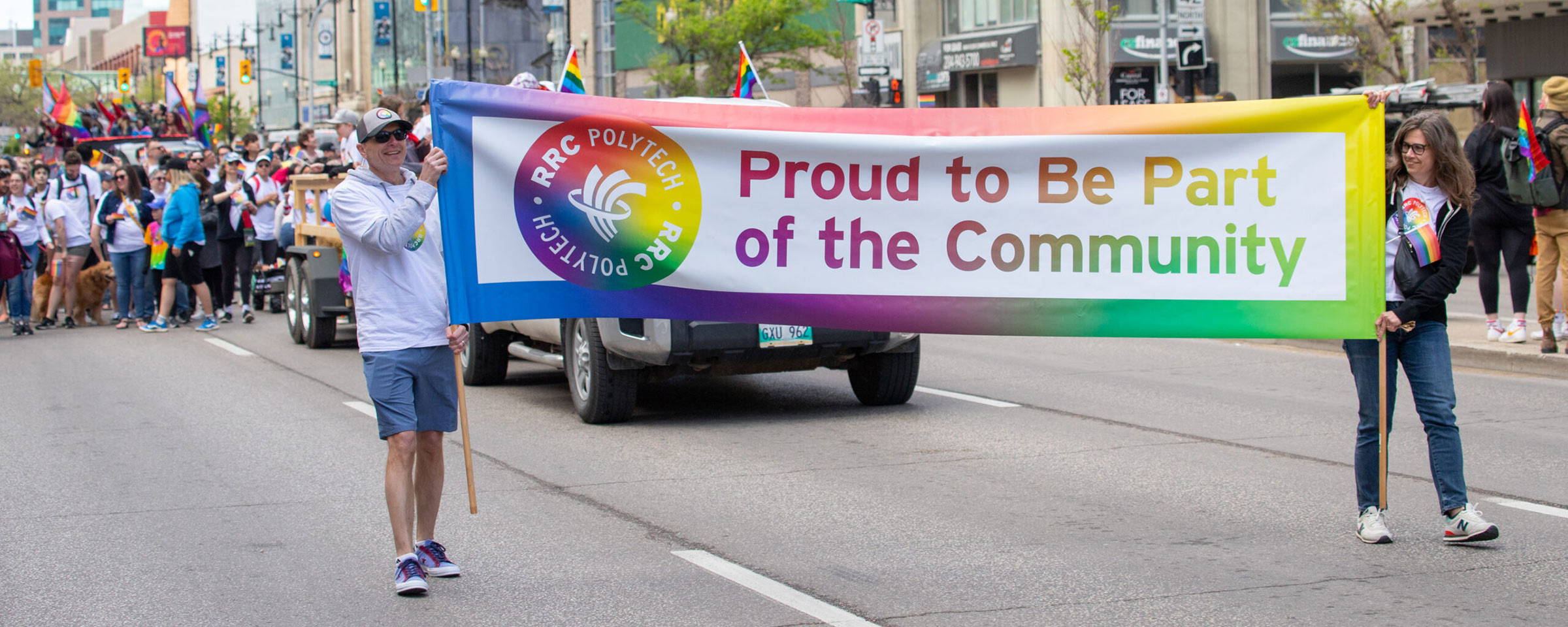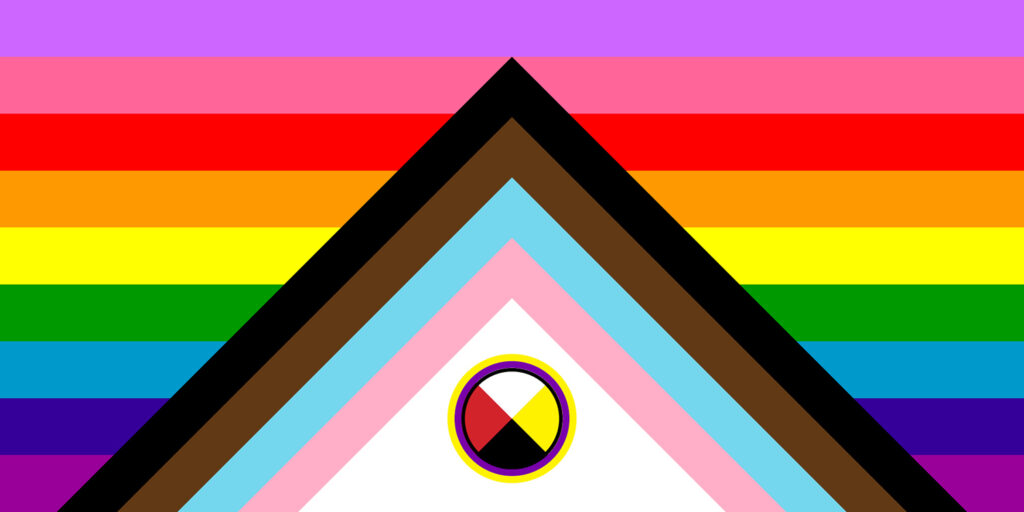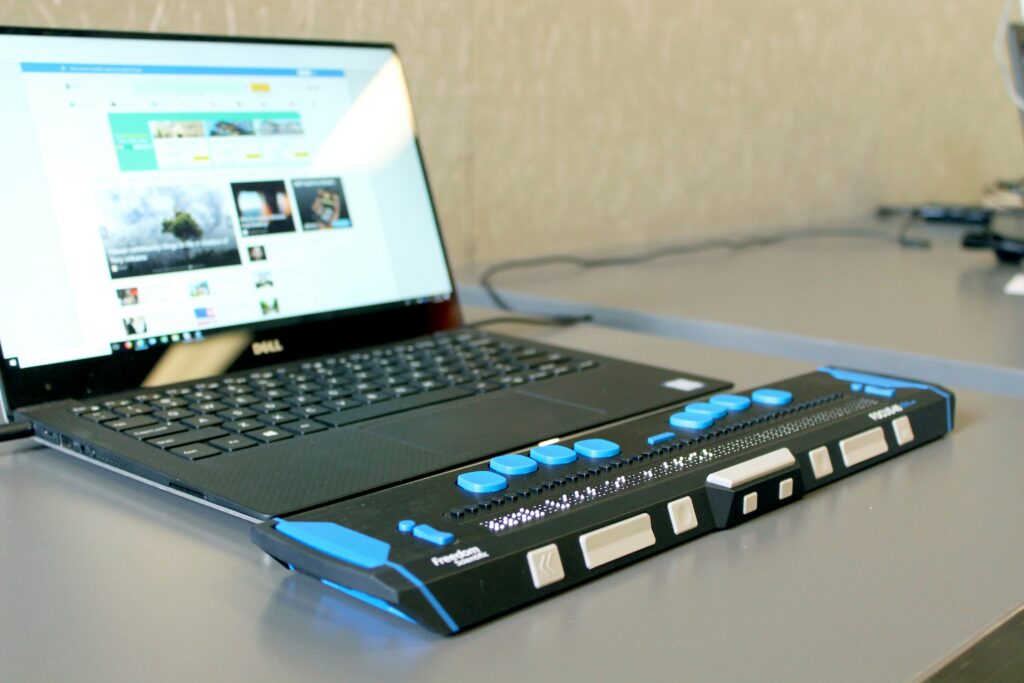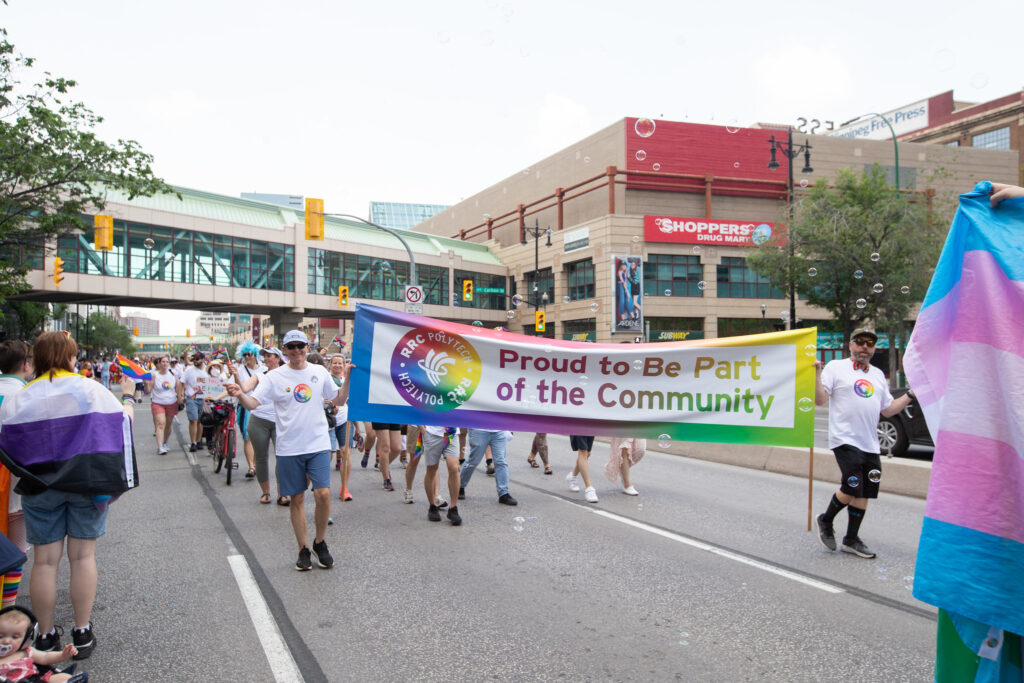Why Do You Need a Parade? A Pride Month Presentation
RRC Polytech is honoured once again to welcome Jonathan Niemczak to speak with the community as part of our Pride Month celebrations.
Jonathan, Chair and President of the Canadian Pride Historical Society (CPHS) will provide an overview of the historical events that lead to the start of the Pride Movement in Canada and Winnipeg.
Date: Tuesday, June 18, 2024
Time: 11:30 a.m. to 12:30 p.m.
Location:
- In person: Roundhouse Auditorium (Second Floor), Manitou a bi Bii daziigae, Exchange District Campus, Red River College Polytechnic, 319 Elgin Avenue
- Please note that in-person capacity is limited – register now to save your spot!
- Light refreshments will be provided for in-person attendees.
- View the interactive map of the Exchange District Campus.
- Online via Zoom

About Jonathan Niemczak
Jonathan Niemczak is the Chair and President of the Canadian Pride Historical Society (CPHS), a national non-profit organization dedicated to documenting and telling the story of the history of the Pride Movement in Canada. Before founding CPHS, Jonathan was the President of the Pride Winnipeg Festival, where he served on the Board of Directors for ten years and led the organization for six. At Pride Winnipeg, he identified a significant gap in the collective knowledge about the origins of Pride in Winnipeg and Pride in other Canadian communities. This insight drove him to establish the Canadian Pride Historical Society, ensuring the preservation of Pride Movement history for future generations. Jonathan is passionate about 2SLGBT+ history and committed to fostering greater awareness and appreciation of the community’s rich heritage. His work ensures that these important stories are not lost to time, highlighting the significance of the Pride Movement in Canada’s social and cultural landscape.
At RRC Polytech strive to host inclusive events. If you require accommodation, please email diversity@rrc.ca.







